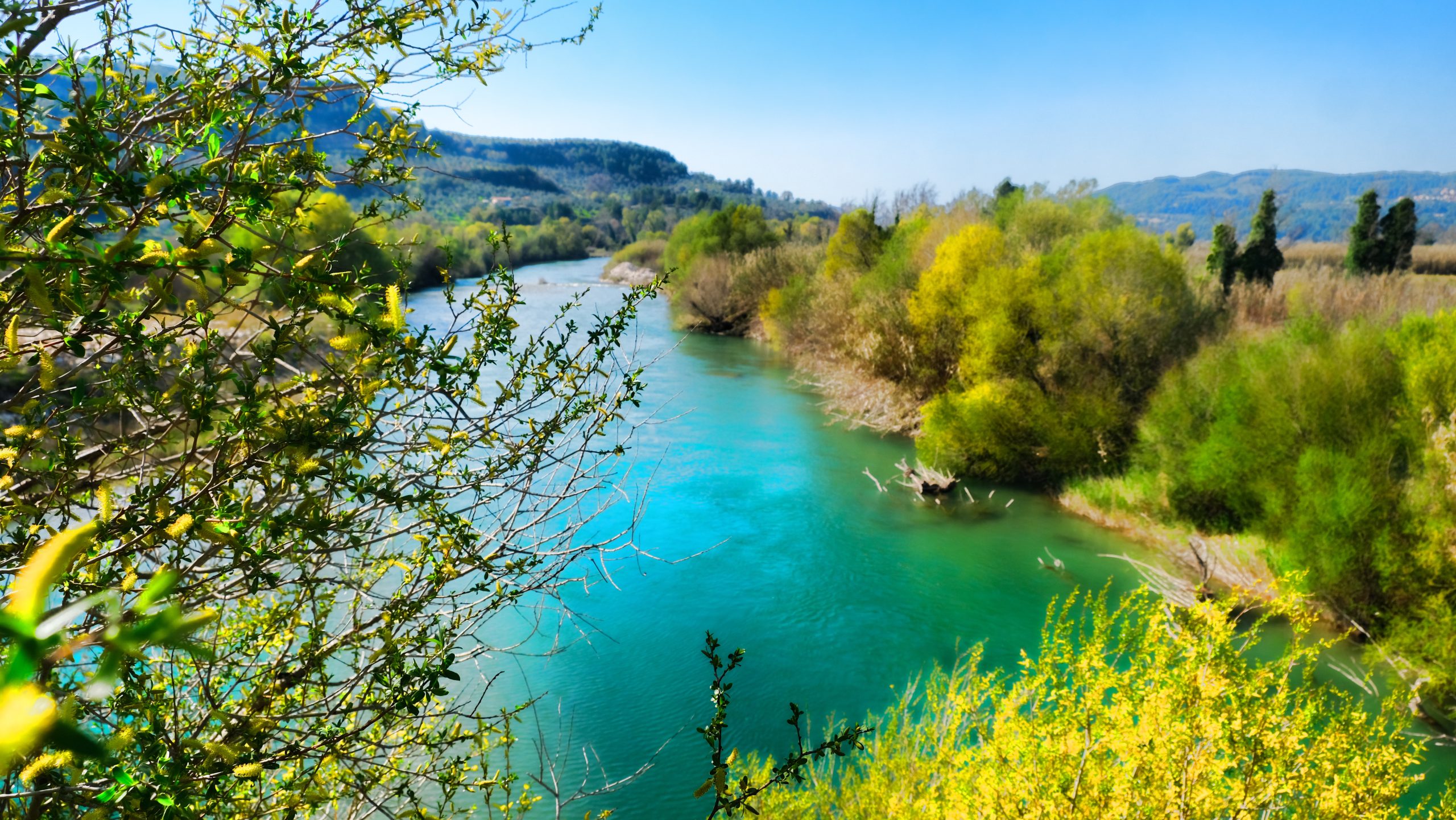The recent creation of the European Commission’s Directorate-General for the Middle East, North Africa, and the Gulf (DG MENA) in February 2025, under the political authority of Commissioner Dubravka Šuica, signals the EU’s renewed commitment to tailored, region-specific engagement.
 In this context, the new Pact for the Mediterranean, is expected to pave the way towards a common space of peace, prosperity and stability in the Mediterranean region, building on the foundations of the 2021 Agenda for the Mediterranean, and by developing innovative instruments and differentiated approaches that reflect the distinct needs of each partner country.
In this context, the new Pact for the Mediterranean, is expected to pave the way towards a common space of peace, prosperity and stability in the Mediterranean region, building on the foundations of the 2021 Agenda for the Mediterranean, and by developing innovative instruments and differentiated approaches that reflect the distinct needs of each partner country.
However, early outlines of what the new Pact for the Mediterranean will cover, did not seem to include key concepts that environmental practitioners in the region were hoping for. In fact, several civil society organizations of all types across the region responded with mixed reactions of hope and caution.
Perhaps attentive to such concerns, in early 2025 Commissioner Šuica took a bold decision to launch a DG MENA supported region-wide consultation process that is currently still running. Surveys and stakeholder meetings throughout the Mediterranean are some of the consultation tools used, while she and her Cabinet is holding meetings with representatives of all stakeholder groups, including with MIO-ECSDE on 27 May in Brussels – as a Federation of NGOs from 28 countries and representing millions of citizens from Scandinavia down to the Gulf – to directly exchange on priorities, concerns and aspirations.
Against a backdrop of accelerating environmental degradation, climate insecurity, social fragility, and geopolitical uncertainty, MIO-ECSDE and its member NGOs have stressed that the New Pact should reflect a strong EU commitment and leadership toward a peaceful, prosperous and sustainable Mediterranean. It also emphasizes the urgent need for the New Pact to integrate and include environmental protection, climate resilience, and civil society empowerment, as priorities.
Showing signs of a tight coordination of the new European Commission, the just announced European Ocean Pact mentions that, through the upcoming proposal for an “Ocean Act”, EU Member States will be encouraged to move from a national approach to a sea basin level approach. In this respect, they will be encouraged to cooperate with neighbouring countries, across existing regional cooperation bodies, through EU macro-regional strategies, as well as to build on the EU Mission “Restore our Ocean and Waters” basin-scale lighthouses. It goes on to also mention the new Pact for the Mediterranean, whereby in collaboration with the Union for the Mediterranean, the Commission will support the development of a blue economy sea-basin strategy on the Eastern Mediterranean, which currently lacks a dedicated structure for cooperation, based on the format of the WestMed Initiative and in cooperation with existing regional bodies. Recognizing that the Mediterranean is not only a region of opportunity but also one of acute socio-environmental vulnerability, any strategy-making needs to meaningfully engage civil society, scientific expertise, and local governance mechanisms to effectively address this complexity.
 Furthermore, the also just launched European Water Resilience Strategy, that aims at restoring and protecting the water cycle, securing clean and affordable water for all and creating a sustainable, resilient, smart and competitive water-economy in Europe, similarly references “the upcoming New Pact for the Mediterranean” as well as the Union for the Mediterranean Water Agenda 2030, in the spirit of strengthening country and regional partnerships on water so as to address increasing water scarcity and climate impacts in the region. The EU also commits to supporting candidate and neighbourhood countries in this course. The Strategy acknowledges the importance of integrating scientific insights into policymaking and sets up forums and research initiatives to support this. However, it remains somewhat general on the specific processes and tools that will consistently translate scientific knowledge into policy action at all governance levels. While it emphasizes dialogue, research, and innovation, concrete frameworks or detailed roadmaps explicitly designed to close the science-policy divide are not prominently detailed in the publicly available documents.
Furthermore, the also just launched European Water Resilience Strategy, that aims at restoring and protecting the water cycle, securing clean and affordable water for all and creating a sustainable, resilient, smart and competitive water-economy in Europe, similarly references “the upcoming New Pact for the Mediterranean” as well as the Union for the Mediterranean Water Agenda 2030, in the spirit of strengthening country and regional partnerships on water so as to address increasing water scarcity and climate impacts in the region. The EU also commits to supporting candidate and neighbourhood countries in this course. The Strategy acknowledges the importance of integrating scientific insights into policymaking and sets up forums and research initiatives to support this. However, it remains somewhat general on the specific processes and tools that will consistently translate scientific knowledge into policy action at all governance levels. While it emphasizes dialogue, research, and innovation, concrete frameworks or detailed roadmaps explicitly designed to close the science-policy divide are not prominently detailed in the publicly available documents.
According to the Commissioner’s Cabinet a first draft of the new Pact for the Mediterranean will be ready for another round of consultation with the aim of having a widely accepted final version in the autumn of 2025. It will be jointly announced and celebrated soon after at Ministerial level.
As the New Pact takes shape, MIO-ECSDE urges the European Commission and Mediterranean partners to pursue a cohesive, bottom-up regional vision that balances local needs with broader geopolitical and environmental challenges. Specific priorities that MIO-ECSDE has brought forward are:
- Adopting the WEFE Nexus Approach: Water, Energy, Food, and Ecosystems must be managed in an integrated manner for resilience and sustainability in the Mediterranean. We urge for the formal adoption and implementation of the already-developed WEFE Nexus Mediterranean Strategy
- Climate-Induced Migration: While climate change should be considered as a potential basis for international protection, definitions and thresholds must be clarified to distinguish it from extreme but isolated events. A major climate-induced migration crisis within the next two decades is plausible. The EU must proactively co-design adaptive strategies with the most vulnerable countries to build resilience and minimize displacement.
- Science-Based Water Diplomacy: Drawing on our longstanding involvement in regional initiatives, we advocate for science-based, participatory governance as the foundation for effective transboundary water management and diplomacy.
- Inclusive Governance, Monitoring and Accountability: Future cooperation must be based on multi-stakeholder dialogue and decision-making involving national governments, local authorities, civil society, scientific institutions, etc. Robust mechanisms must be introduced to monitor green and blue diplomacy and environmental cooperation, with inputs from CSOs and other key non-state actors to ensure transparency and accountability.

MIO-ECSDE also reaffirms that no meaningful Mediterranean cooperation can succeed without local knowledge, public participation, gender equality and youth inclusion.
“The Mediterranean is facing a multidimensional crisis. Environmental degradation, water scarcity, and climate-induced insecurity threaten not only ecosystems but also social cohesion and political stability. Civil society calls for the New Pact for the Mediterranean to not sideline environmental and climate considerations, nor overlook the crucial role of civil society, scientific networks, women and youth in shaping the region’s future.” (Prof. Scoullos – Chairperson of MIO-ECSDE)
MIO-ECSDE reiterates its readiness to collaborate closely with EU institutions and Mediterranean partners to ensure that the New Pact for the region becomes a landmark document and reflects the urgency of environmental protection and the principles of equity, participation, and sustainability in a peaceful Mediterranean.
Read in French here.